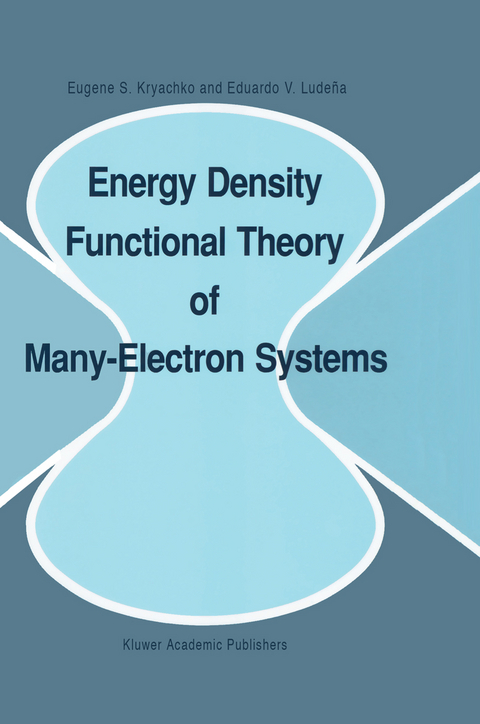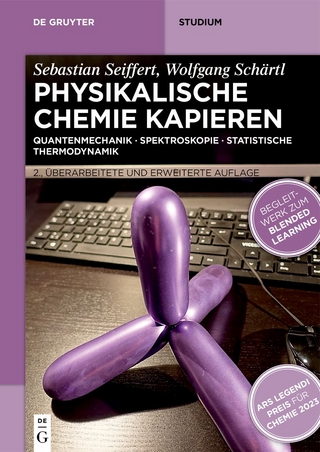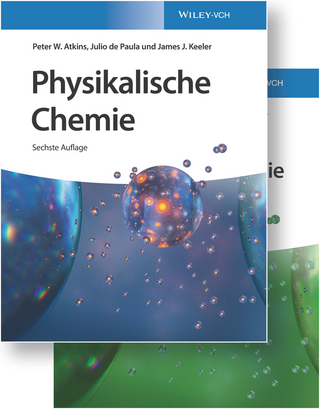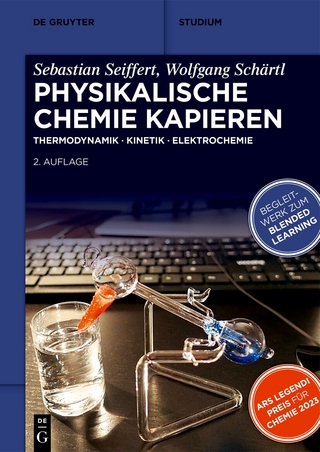
Energy Density Functional Theory of Many-Electron Systems
Springer (Verlag)
978-94-010-7381-3 (ISBN)
Petkov, Jerome K. Percus, l/lary Beth Ruskai, John R. Sabin, Zdenek Slanina, /'ladimir Shi- rokov, l/lario V. Stoitsov, Yoram Tal, and /Vaitao Yang, who in one way or another, either through their kind support, help, discussions or valuable comments created the human and intellectual background which made this book possible.
1. Energy density functional theory: historical and bibliographic sketch.- 1.1. The Thomas-Fermi theory and its sequels.- 1.2. One-electron equations.- 1.3. Bibliographic sketch Monographies and books.- 2. Many-electron wavefunctions, density matrices, reduced density matrices and variational principles.- 2.1. Pure states and emsembles in quantum mechanics.- 2.2. Reduced density matrices.- 2.3. Spin structure of wavefunctions and reduced density matrices.- 2.4. Variational principle in the Schrödinger picture of quantum chemistry.- 3. The one-electron density.- 3.1. The meaning of the one-electron density.- 3.2. The one-electron density and molecular structure.- 3.3. Charge distributions and atomic charges.- 3.4. Quantum mechanics of an atomic fragment.- 3.5. Molecular structure and its relation to topologic properties of one-electron densities.- 3.5.b. Catastrophe points and their relation to the change in molecular structure.- 4. An Introduction to density functional theory from the perspective of the independent-particle model and its corrections.- 4.0. Preamble.- 4.1. The Hartree-Fock variational approach.- 4.2. The exact level.- 4.3. The kinetic energy term.- 4.4. The N-representability problem for D2 and ?.- 5. The Thomas-Fermi energy density functional and its generalization.- 5.1. Formulation of the Thomas-Fermi model for atoms and ions.- 5.2. Leading quantum corrections to the Thomas-Fermi atom.- 5.3. Post Thomas-Fermi-Dirac-von Weizsaker developments in density functional theory.- 5.4. Molecular structure and molecular interactions from the perspective of the Thomas- Fermi theory and its extensions.- 6. Foundations of density functional theory.- 6.0. Preamble.- 6.1. Correspondence between ground-state one-electron densities and external potentials.- 6.2.v-representability of one-electron densities.- 6.3 N-representability of one-electron densities.- Problems.- 6.4. The second Hohenberg-Kohn theorem.- 6.5. Universal functionals for non-v-representable one-electron densities.- 6.6. Approximate method for the determination of universal functional.- 6.7. A universal functional of the reduced first-order density operator.- 7. A rigorous formulation of the variational principle in density functional theory.- 7.1. Introductory remarks.- 7.2. Explicit construction of the energy density functional.- 7.3 Reformulation of the Hohenberg-Kohn theorems.- 7.4. The spin-density functional formalism.- 7.5. Density functional theory for excited states.- 7.6 The non-adiabatic energy density functional theory.- 7.7. The concept of fractional occupation numbers in density functional theory.- 7.8. N-representability of experimentally determined densities.- 7.9. The inverse problem in density functional theory.- 8. The self-consistent field concept in density functional theory.- 8.1. Introductory comments.- 8.2. The Slater-Kohn-Sham ansatz. Self-consistent field version of exchange-only density functional theory.- 8.3. The inverse problem in the Slater-Kohn-Sham ansatz.- 8.4 The Kohn-Sham ansatz.- 9. Synopsis and future trends.- 9.1 Density functional theory: overview and interfaces.- Theory of nuclear structure.- 9.2 Concluding remarks.
| Reihe/Serie | Understanding Chemical Reactivity ; 4 |
|---|---|
| Zusatzinfo | XIII, 850 p. |
| Verlagsort | Dordrecht |
| Sprache | englisch |
| Maße | 155 x 235 mm |
| Themenwelt | Naturwissenschaften ► Chemie ► Physikalische Chemie |
| Naturwissenschaften ► Physik / Astronomie ► Atom- / Kern- / Molekularphysik | |
| Naturwissenschaften ► Physik / Astronomie ► Festkörperphysik | |
| Naturwissenschaften ► Physik / Astronomie ► Thermodynamik | |
| ISBN-10 | 94-010-7381-3 / 9401073813 |
| ISBN-13 | 978-94-010-7381-3 / 9789401073813 |
| Zustand | Neuware |
| Haben Sie eine Frage zum Produkt? |
aus dem Bereich


